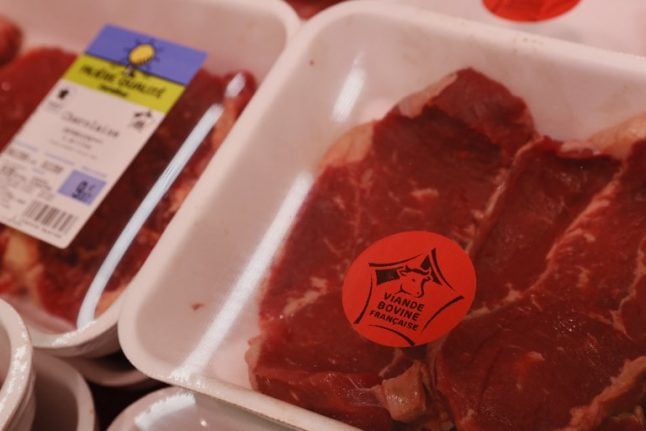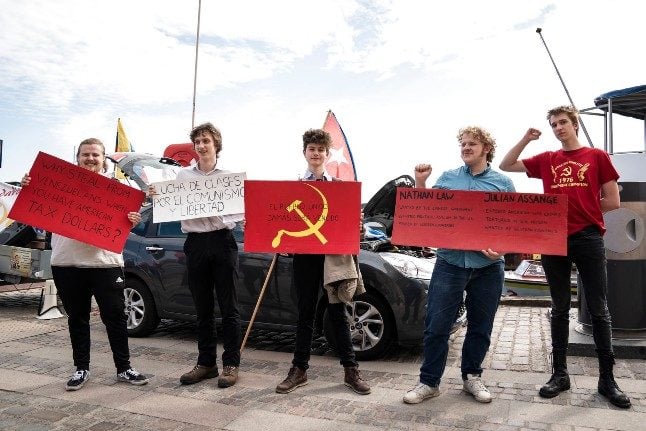CHINA
China signs deal to end French beef ban
China signed a deal Monday to lift a ban on French beef and said discussions to buy Airbus planes remained open as French Prime Minister Edouard Philippe ended a four-day visit.
Published: 25 June 2018 16:51 CEST

French beef in the supermarket. Photo: AFP
The beef ban was imposed over a decade ago as Beijing started closing off its markets to all European imports, and later to US beef imports, in the wake of the “mad cow” disease scare.
Philippe and Premier Li Keqiang oversaw the signing of an agreement to lift the embargo, which French producers say will put their beef back on Chinese plates by September.
“We are already in contact with Chinese buyers,” said the president of French beef industry group Interbev, Dominique Langlois, who said the aim was to export 30,000 tonnes per year.
The accord was the culmination of an agreement reached when French President Emmanuel Macron met Chinese leader Xi Jinping in Beijing earlier this year.
China had also committed to buying 184 single-aisle A320 Airbus planes during Macron's January visit, but the deal has not been finalised.
“We are ready to continue discussions on the purchase of Airbus planes in a timely manner,” Li said.
Airbus could stand to benefit if China's looming trade war with the United States prompts Beijing to favour the European aerospace giant over US rival Boeing.
“I am happy that China has confirmed its strong willingness to finalise the commitments made in January regarding Airbus,” said Philippe, who also met Xi on Monday.
A total of 18 agreements were signed in the fields of science, medicine, tourism and energy.
French nuclear group Orano and China National Nuclear Corp announced an agreement for preparatory work on a used fuel processing and recycling plant in China.
The nuclear deal, valued at more than 20 billion euros ($23.4 billion), has been in the works for a decade and could now be concluded this year.
Url copied to clipboard!


 Please whitelist us to continue reading.
Please whitelist us to continue reading.
Member comments